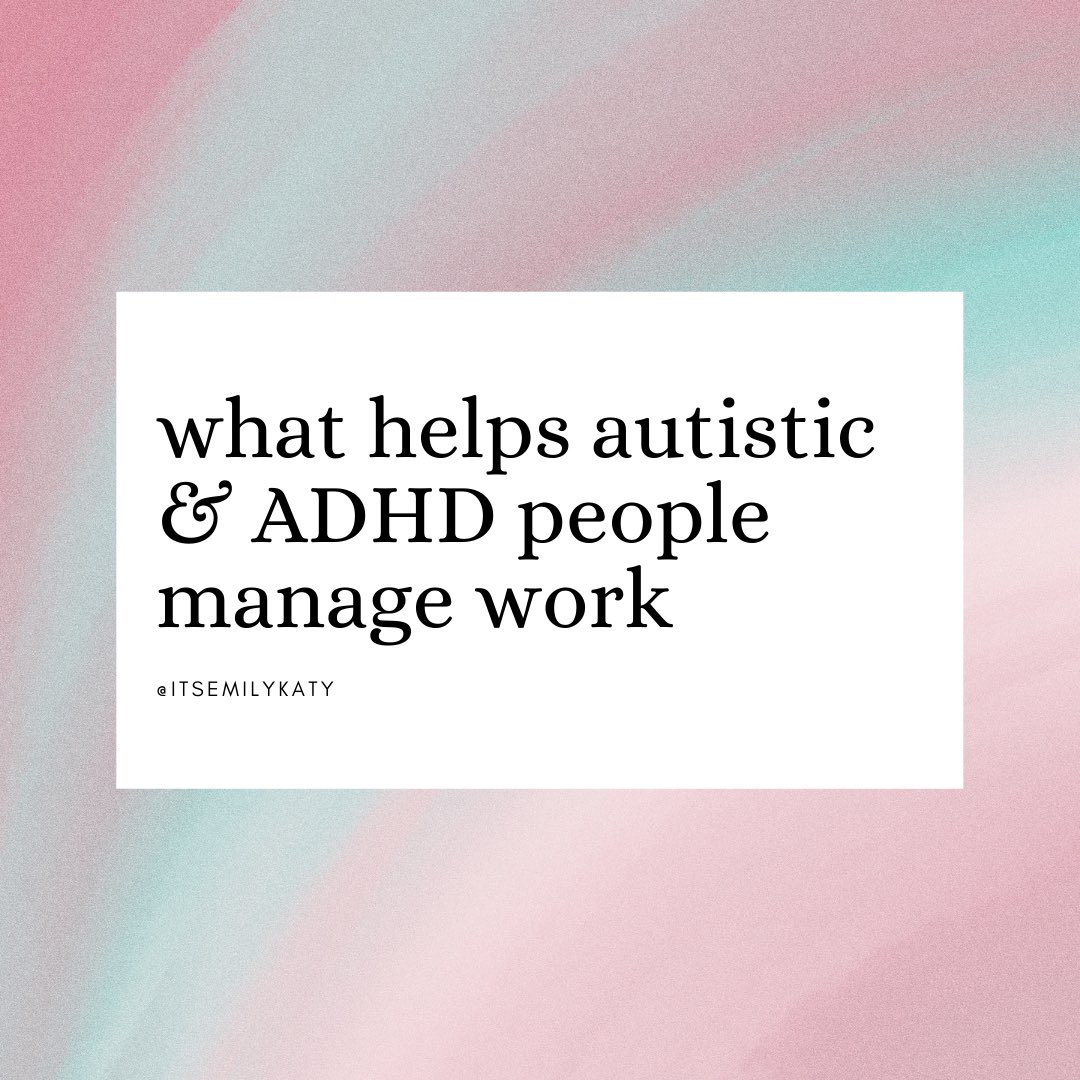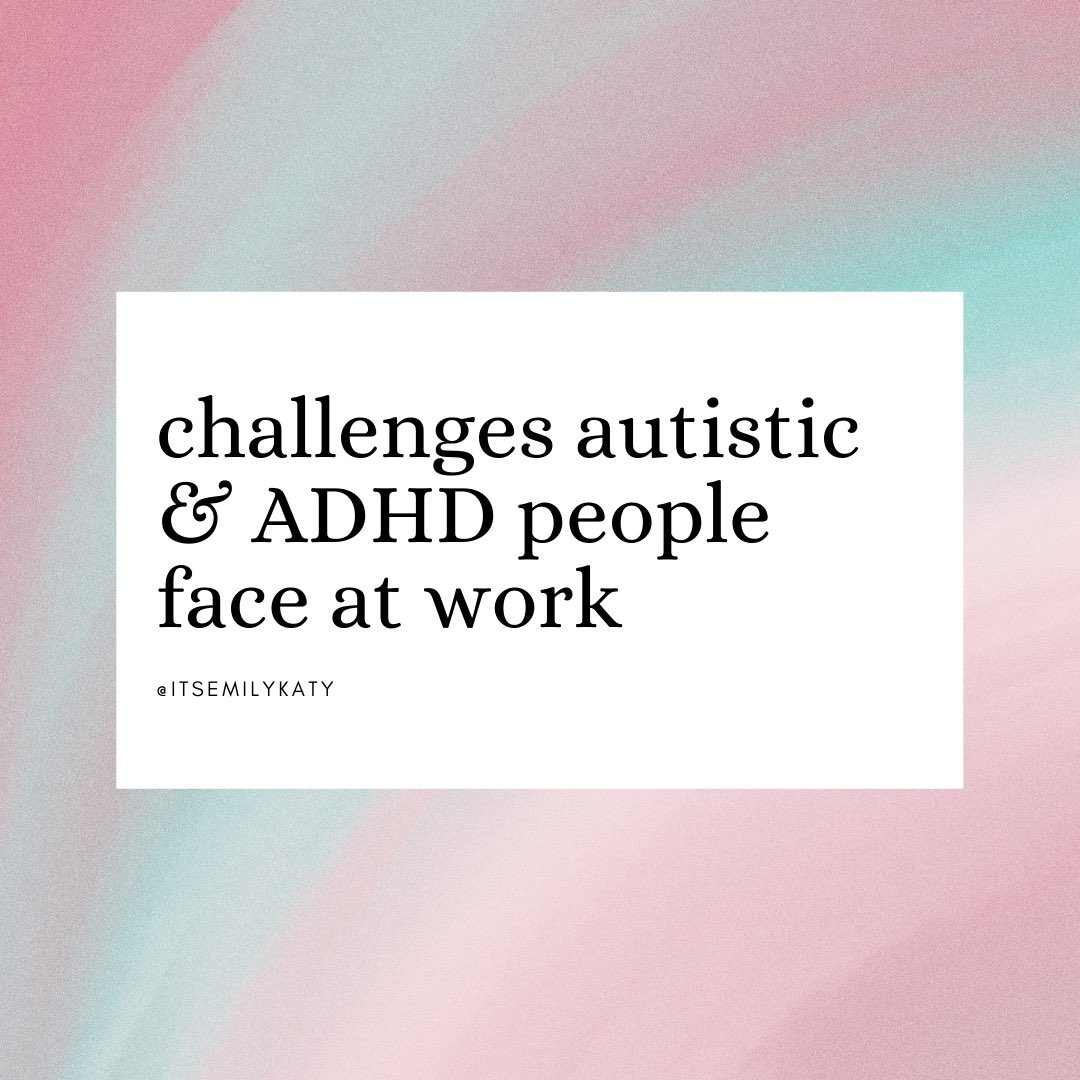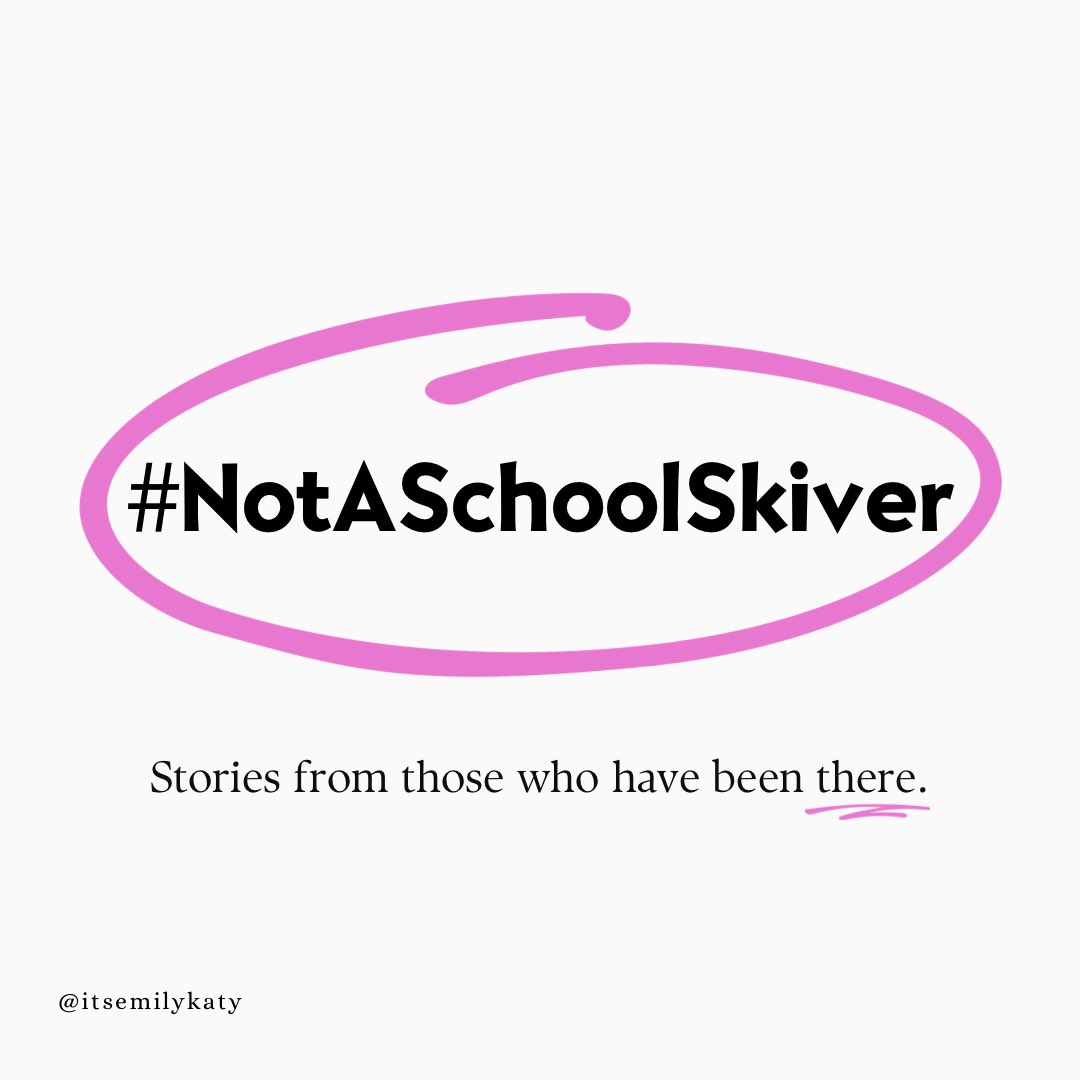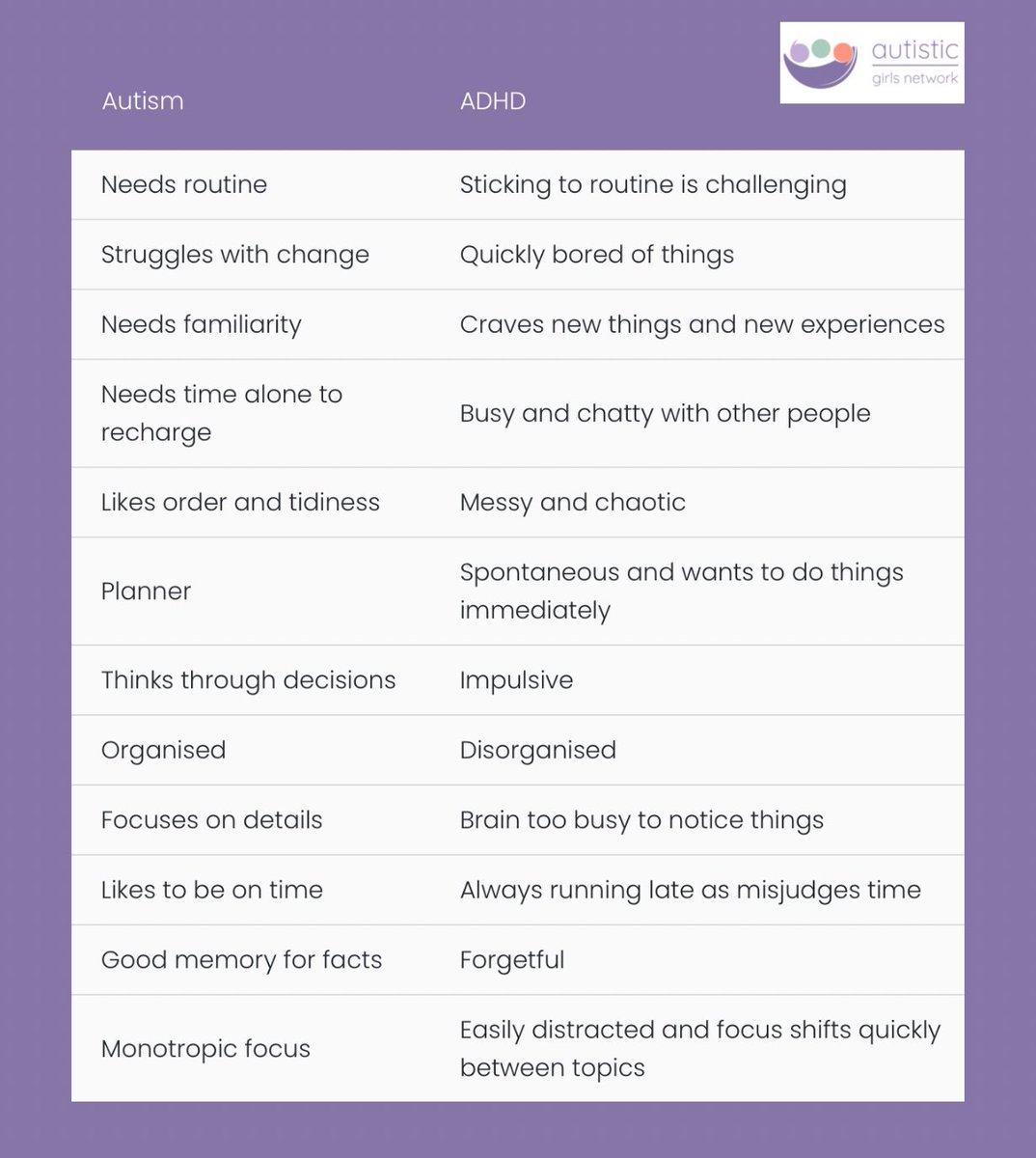
Author of GIRL UNMASKED: HOW UNCOVERING MY AUTISM SAVED MY LIFE (The Sunday Times Bestseller) 📚 & Trustee of Autistic Girls Network.
3 subscribers
How to get URL link on X (Twitter) App


 Intrusive thoughts are unwanted thoughts that pop into our minds and make us feel distressed, upset or uncomfortable. The nature of these vary, but they can be violent, distressing, or a recurring fear that you might say or do something harmful or inappropriate.
Intrusive thoughts are unwanted thoughts that pop into our minds and make us feel distressed, upset or uncomfortable. The nature of these vary, but they can be violent, distressing, or a recurring fear that you might say or do something harmful or inappropriate.

 ADHD has had a lot of attention in the media for being ‘trendy’ & ‘overdiagnosed’. It’s neither. It was only introduced into the DSM (Diagnostic and Statistical Manual of Mental Disorders) in 1968 as ‘Hyperkinetic Reaction of Childhood’. Let’s be clear - it’s not a mental disorder, but this is the manual by which conditions are diagnosed. NICE only recognised childhood ADHD in 2000 and ADHD in adults in 2008, which enabled diagnosis in the UK. It is estimated that 5% of the population have ADHD, but 5% aren’t diagnosed (@ADHDUKcharity).
ADHD has had a lot of attention in the media for being ‘trendy’ & ‘overdiagnosed’. It’s neither. It was only introduced into the DSM (Diagnostic and Statistical Manual of Mental Disorders) in 1968 as ‘Hyperkinetic Reaction of Childhood’. Let’s be clear - it’s not a mental disorder, but this is the manual by which conditions are diagnosed. NICE only recognised childhood ADHD in 2000 and ADHD in adults in 2008, which enabled diagnosis in the UK. It is estimated that 5% of the population have ADHD, but 5% aren’t diagnosed (@ADHDUKcharity).

https://twitter.com/lucygobag/status/1761028804678443249Autistic students often struggle using the toilet at busy times due to sensory needs. School toilets become very cramped and loud during break-times.

 As @PDASociety state: ‘recognition of PDA is currently inconsistent…however, a PDA profile can, and should, be taken into consideration when undertaking autism assessments…when assessing and diagnosing, clinicians can add appropriate descriptive terms to an autism diagnosis…
As @PDASociety state: ‘recognition of PDA is currently inconsistent…however, a PDA profile can, and should, be taken into consideration when undertaking autism assessments…when assessing and diagnosing, clinicians can add appropriate descriptive terms to an autism diagnosis…

 What helps autistic and ADHD people at work.
What helps autistic and ADHD people at work. 

 Challenges autistic and ADHD people face at work.
Challenges autistic and ADHD people face at work. 

 92.1% of those with school attendance difficulties are neurodivergent.
92.1% of those with school attendance difficulties are neurodivergent. 



 Not all autistic people or ADHDers will have all traits listed - we are individuals and this is an overgeneralisation. But looking at how they typically present, it is easy to see how they appear to contradict each other! Yet they so often co-exist…so what could that look like?
Not all autistic people or ADHDers will have all traits listed - we are individuals and this is an overgeneralisation. But looking at how they typically present, it is easy to see how they appear to contradict each other! Yet they so often co-exist…so what could that look like?